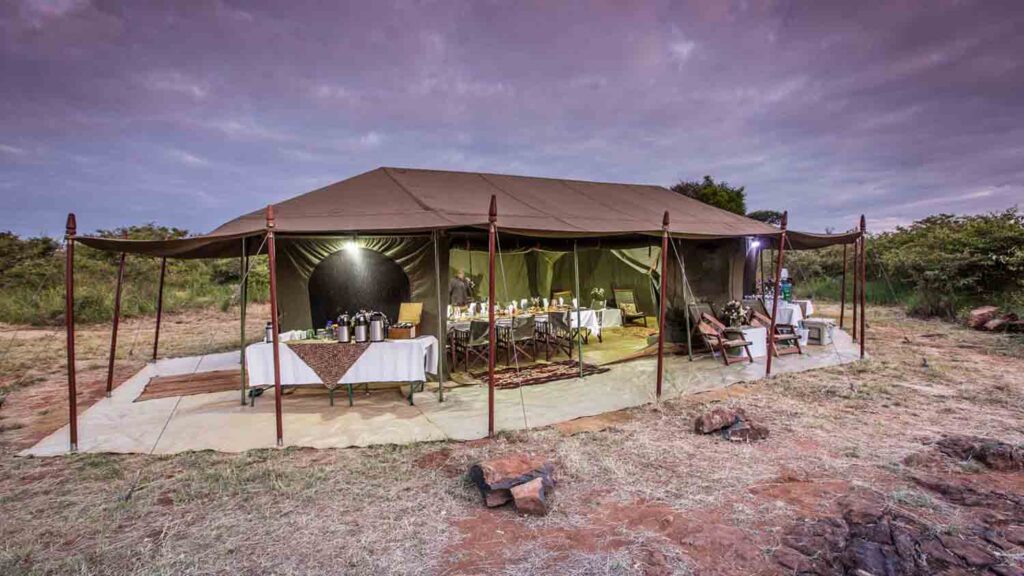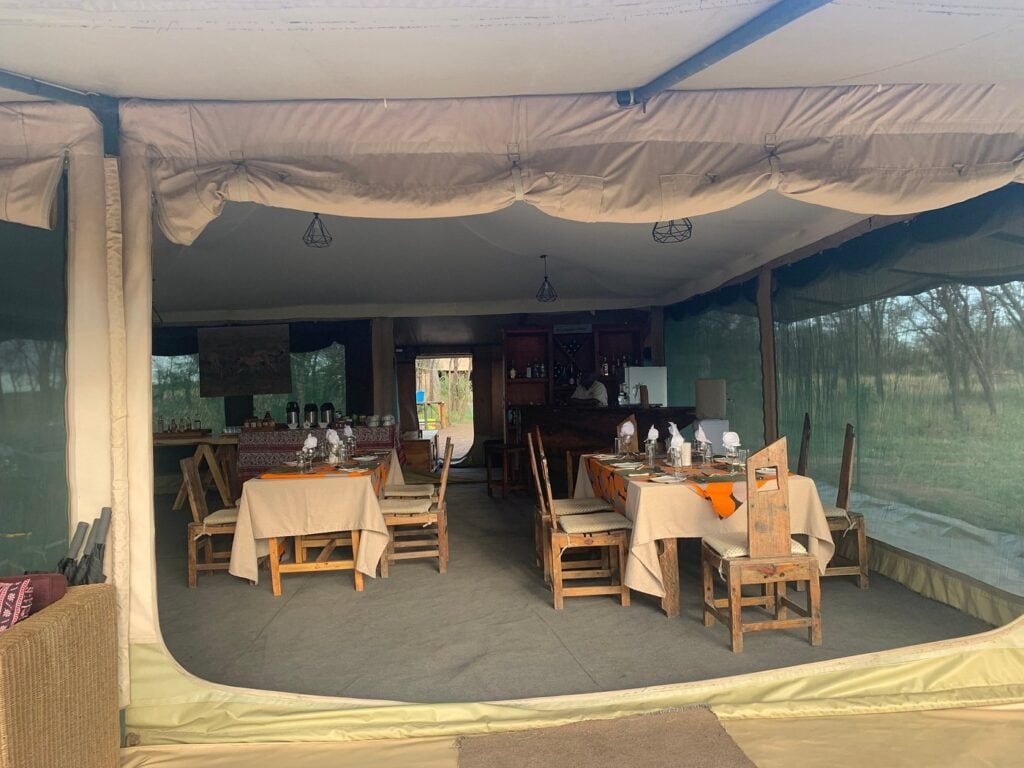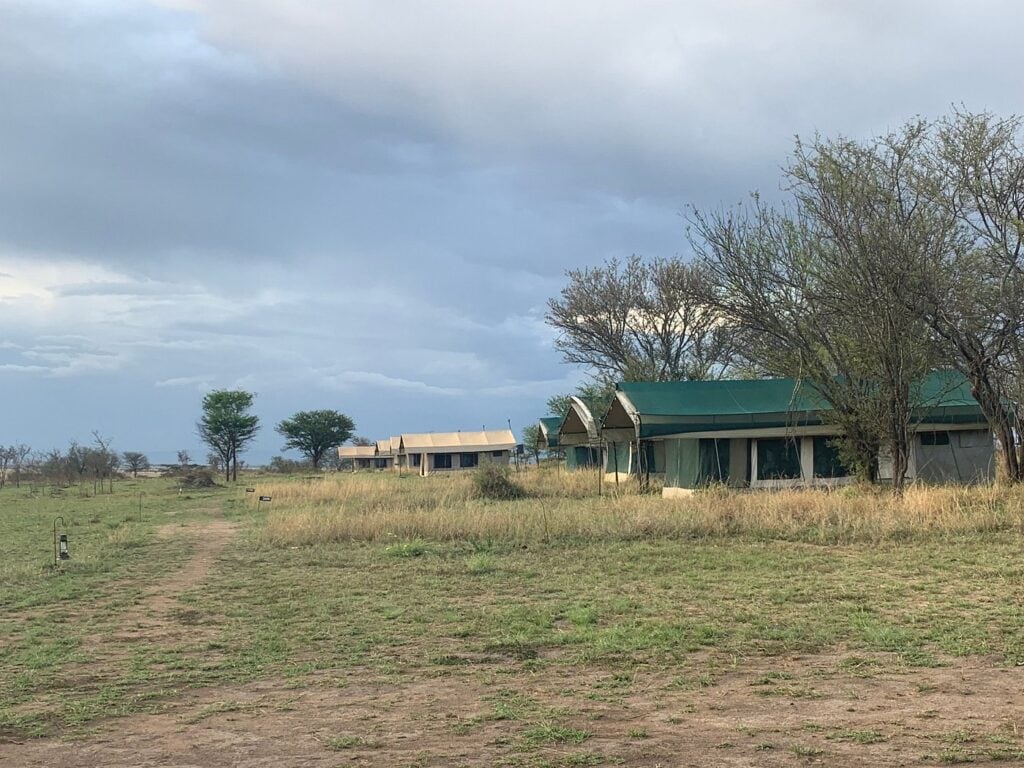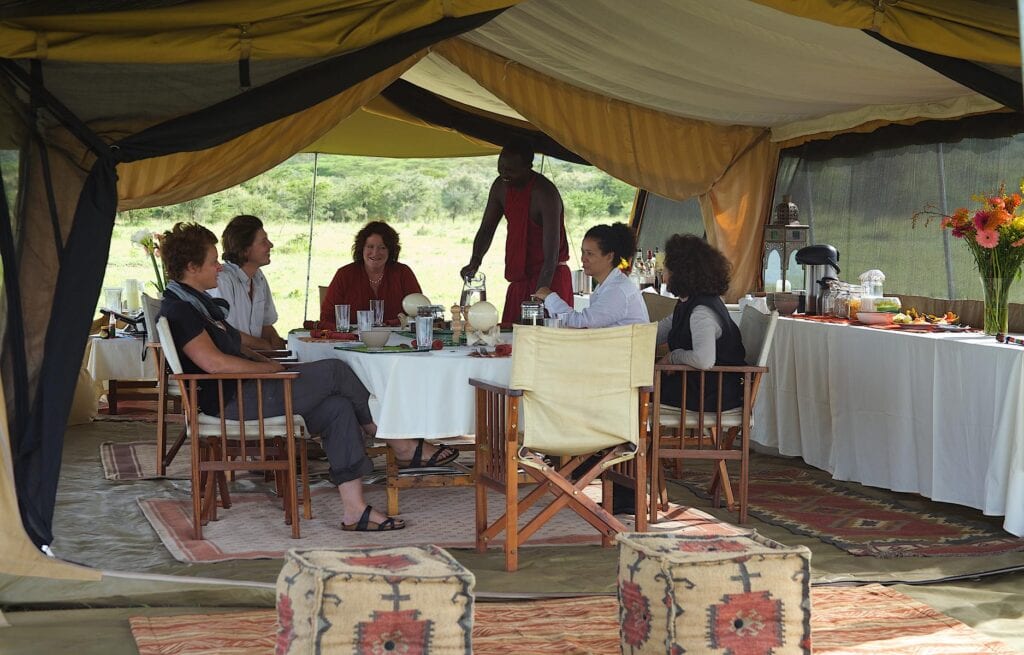A mobile camping safari is a great and flexible way to explore the African wilderness and be part of nature. These safaris take you out of sight of big structures that may be a reminder of civilisation. Because mobile camps are temporary structures, they can be moved from one place to another without having a permanent impact on the environment, making them eco-friendly. Let’s learn more about this exclusive way to explore the African wilderness.
Safety Tips and Tricks
1. Select the Right Safari Operator
The cornerstone of your safari adventure is the expertise and reliability of your chosen operator. Opt for a company with a solid safety record, experienced guides, and a commitment to ecological conservation.
Their proficiency will enrich every aspect of your safari, from wildlife encounters to your well-being in the wilderness. Get as local as possible; they don’t only rely on a ‘book’ but their life experiences as well.

2. Know the Climate and Pack Accordingly
Different regions have distinct climatic conditions. Investigate the expected weather during your travel period and pack a variety of clothing. Comfortable daywear, protective gear for rain, and warmer layers for cooler evenings are essential. Don’t forget your sunglasses and sunhat; pack extras in case of accidents. Remember to pack safari-appropriate coloured clothes to avoid standing out when around animals.
3. Prioritise Health Precautions
Health is a top priority. Schedule a visit to a travel health specialist to receive necessary vaccinations and medications. Bring a well-stocked first-aid kit and don’t forget prescription medications, ensuring you’re prepared for minor health issues. Take out travel insurance; it’s better to be safe than sorry.

4. Indulge in the Culinary Experience
Most mobile safari camps provide an array of culinary delights, blending international dishes with local flavours. Enjoy the unique dining experiences and share any dietary requirements with your hosts in advance to ensure your needs are met. Drink lots of water to avoid being dehydrated. Keep an open mind and broaden your taste palate.

5. Adhere to Camp Rules and Guidelines
For your safety and that of the ecosystem, it’s crucial to respect the established guidelines of your camp. These rules are grounded in years of experience and are essential for coexisting peacefully with the surrounding wildlife. Remember to always keep the zips on your tent closed, especially when the tent is unoccupied.
Always pay attention to the signs around the camp, and don’t walk barefoot or think you can quickly dip your feet in the river. Be considerate of fellow travellers, keep noise levels to a minimum, and don’t play loud music.

6. Invest in Good Quality Gear
Quality gear enhances your safari experience. Bring along robust binoculars, a camera with a good lens, and perhaps a field guidebook for identifying the diverse flora and fauna you’ll encounter. Make sure to bring the correct plug adaptor for your electronic devices.
7. Respect Wildlife and the Environment
In a world where nature rules, you are a guest. Keep a respectful distance from wildlife, stay within designated areas, and follow the guidance of your hosts to ensure both your safety and the preservation of the natural habitat. Smokers must always use dedicated smoking places and ashtrays at all times, ensuring they discard the cigarette completely, as a failure in that regard can cause devastating results. Do not take food to your tents; the smell will attract animals – if not the big ones, then the crawlies.
8. Unplug and Connect With Your Surroundings
A mobile camping safari is a chance to disconnect from digital distractions and immerse yourself in nature. Embrace the digital detox and engage with your surroundings. Listen to the stories of your guides, share experiences with fellow travellers, and soak in the majestic landscapes around you.
Take the chance to look up at the night skies and admire their beauty, rest, and get some much-needed good night’s sleep. Journal, exercise, or just sit in total silence for some time. Your mind, body, and soul will be rejuvenated.

9. Participate in Conservation Efforts
Complement your safari journey by contributing to the preservation of the very landscapes and wildlife you’ve come to admire. Use biodegradable toiletries, spare water and electricity, and use recycling bins. Enquire about local conservation initiatives, anti-poaching units, or community outreach programmes you can support, either financially or through hands-on involvement. This active participation adds a fulfilling dimension to your adventure, ensuring your visit leaves a positive impact.

A mobile camping safari is a fantastic choice for safari lovers looking for an experience that will fully immerse you in nature.
Author: Matthys Van Aswegen
Published:
Last Update:
Part of the Mobile Camping Safaris Collection